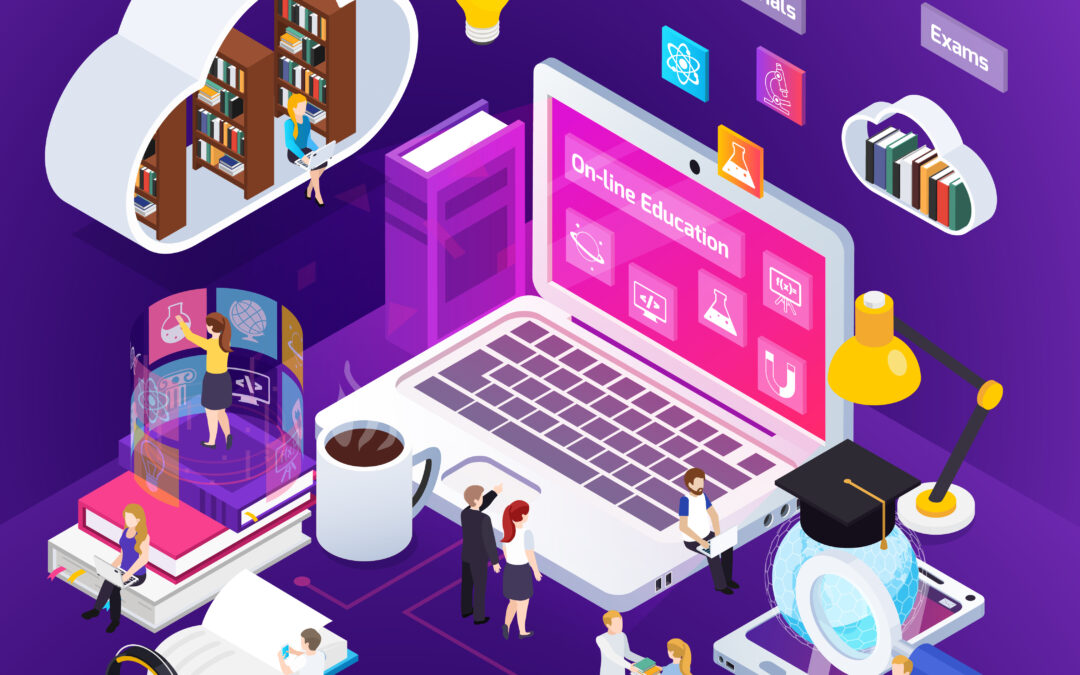In the ever-evolving landscape of education technology, eLearning platforms have been at the forefront of transforming the way we acquire knowledge. As the digital realm continues to advance, a new and exciting frontier has emerged – quantum computing. While still in its nascent stages, quantum computing holds the potential to revolutionize eLearning in ways that were once unimaginable. In this blog, we will explore the fascinating intersection of quantum computing and eLearning, offering a glimpse into the future of learning technology.
Understanding Quantum Computing
Before delving into its implications for eLearning, let’s grasp the basics of quantum computing. Unlike classical computers, which use bits to process information as either 0s or 1s, quantum computers use quantum bits or qubits. Qubits have a unique property called superposition, allowing them to exist in multiple states simultaneously. This inherent parallelism gives quantum computers an immense computational advantage over their classical counterparts.
Speed and Efficiency
Quantum computers are renowned for their computational speed and efficiency. Complex calculations that would take classical computers years, or even millennia, can be solved in a matter of seconds with quantum computing. This capability has profound implications for various fields, including eLearning.
Quantum Computing and eLearning: A Synergistic Duo
Personalized Learning Paths
One of the most promising applications of quantum computing in eLearning is the ability to create highly personalized learning paths. Quantum algorithms can process vast datasets and analyze individual learning behaviors in real-time. This enables eLearning platforms to adapt and tailor content to each learner’s needs instantaneously. Whether it’s recommending specific courses, adjusting difficulty levels, or suggesting supplementary resources, quantum computing can enhance the learning experience by making it truly individualized.
Complex Simulations and Modeling
In fields such as physics, chemistry, and engineering, eLearning often relies on simulations and modeling to teach complex concepts. Quantum computers excel at simulating quantum systems, making it possible to create highly accurate and intricate simulations. Students can gain a deeper understanding of quantum physics, molecular structures, and more through immersive, hands-on experiences facilitated by quantum-powered eLearning tools.
Enhanced Data Security
Data security is a paramount concern in eLearning, particularly when dealing with sensitive student information. Quantum computing also has a role to play in this aspect. It can develop unbreakable encryption algorithms, ensuring that student data remains secure and protected from cyber threats. This added layer of security can foster trust and confidence in eLearning platforms.
Accelerated Research and Development
Quantum computing’s computational power can expedite the development of eLearning content and technologies. Researchers and content creators can harness quantum algorithms to optimize curriculum design, conduct advanced data analysis, and innovate at a faster pace. This means quicker updates, better content, and more engaging learning experiences for students.
Addressing Scalability Challenges
As eLearning continues to gain popularity, scalability becomes a significant concern. Traditional cloud-based solutions may face limitations as user numbers grow. Quantum computing can address this challenge by offering exponential scalability. This ensures that eLearning platforms can accommodate a growing user base without compromising performance or accessibility.
Challenges and Considerations
While the integration of quantum computing into eLearning holds tremendous promise, it also presents challenges and considerations:
Accessibility and Cost
Quantum computing technology is currently in its infancy, and access to quantum computers is limited. Moreover, building and maintaining quantum computing infrastructure can be costly. As the technology matures and becomes more accessible, these barriers may gradually diminish.
Training and Skills
The adoption of quantum computing in eLearning will require educators and developers to acquire new skills and knowledge. Training programs and resources will be essential to bridge this knowledge gap.
Ethical and Privacy Concerns
As quantum computing enables more personalized learning experiences, it also raises ethical questions about the collection and use of learner data. Striking a balance between personalization and privacy will be crucial.
The Quantum Leap in eLearning
Quantum computing represents a quantum leap in the world of eLearning. Its unparalleled computational power opens doors to personalized learning, complex simulations, enhanced security, and accelerated development. While challenges exist, the potential benefits for learners, educators, and institutions are immense.
As quantum computing technology matures and becomes more accessible, it will be exciting to witness the full integration of this groundbreaking technology into eLearning. The future of learning technology is poised for a transformative shift, offering learners a more dynamic, engaging, and tailored educational experience than ever before. In the coming years, quantum computing and eLearning will continue to evolve in tandem, shaping the future of education in ways we can only begin to imagine.


Recent Comments